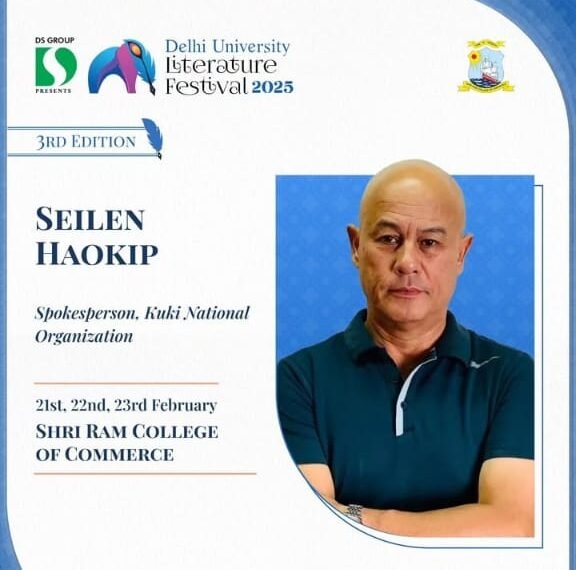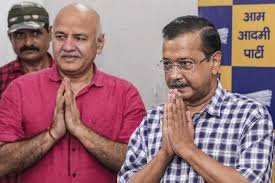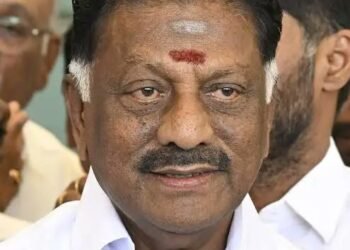Meitei groups, led by the Meitei Heritage Society, condemn the decision to include a KNO leader at a reputed academic event, warning that it could normalize extremist rhetoric and inflame ethnic tensions.
BY PC Bureau
A fierce dispute has erupted following the decision to invite Mr. Seilen Haokip—the spokesperson for the Kuki National Organization (KNO)—to speak at the prestigious Delhi University Literary Festival. The move has sparked strong reactions from the Meitei community, with the Meitei Heritage Society condemning the invitation as a dangerous endorsement of a militant figure.
Background and Controversy
KNO, a group long is implicated in the violence that has destabilized Manipur. Haokip, a prominent voice for the Kukis, maintains that his organization is not an enemy but a legitimate representative of the Kuki community. “We have been in talks with the government. Why can’t we talk to the public? We are not an enemy. We have as much right as the Meiteis. Kukis are Indians too,” he asserted.
ALSO READ: Meitei Body urges PM Modi to visit Manipuri, fire Amit Shah
However, this stance has not sat well with many Meiteis. The Meitei Heritage Society, a key cultural organization representing Meitei interests, expressed outrage over the invitation extended by the festival organizers, including those affiliated with institutions like Shri Ram College of Commerce. In a strongly worded statement, the society decried the decision, stating that providing a platform to a spokesperson of a militant organization not only disrespects the victims of Manipur’s violence but also risks normalizing extremist rhetoric in academic circles.
ALSO READ: Viral Video: Masked Militant Threatens Manipur Police Amid Arambai Tenggol Crackdown
Diverging Perspectives
The controversy has deep roots in the historical tensions between the Meitei and Kuki communities. While some within the Kuki ranks argue that open dialogue is essential for reconciliation and that they deserve equal representation in public discourse, Meitei groups fear that legitimizing voices linked to militancy could further inflame an already volatile situation.
Officials close to the literary festival have defended the invitation as part of a broader commitment to free speech and dialogue. However, critics warn that the decision undermines efforts to achieve peace and justice in Manipur by effectively giving a platform to a group accused of severe human rights violations.
A Call for Reassessment
The clash over Mr. Haokip’s participation underscores the delicate balance educational institutions must maintain when engaging with politically charged issues. The Meitei Heritage Society has urged the festival organizers to reconsider their decision and to take measures to ensure that academic spaces do not inadvertently endorse militancy. As the debate intensifies, the incident raises critical questions about the role of public platforms in mediating ethnic conflicts and promoting responsible discourse.
With tensions running high, the fallout from this invitation is expected to influence future decisions regarding the inclusion of controversial figures in academic and cultural events, highlighting the broader challenges of navigating ethnic and political divides in India today.














